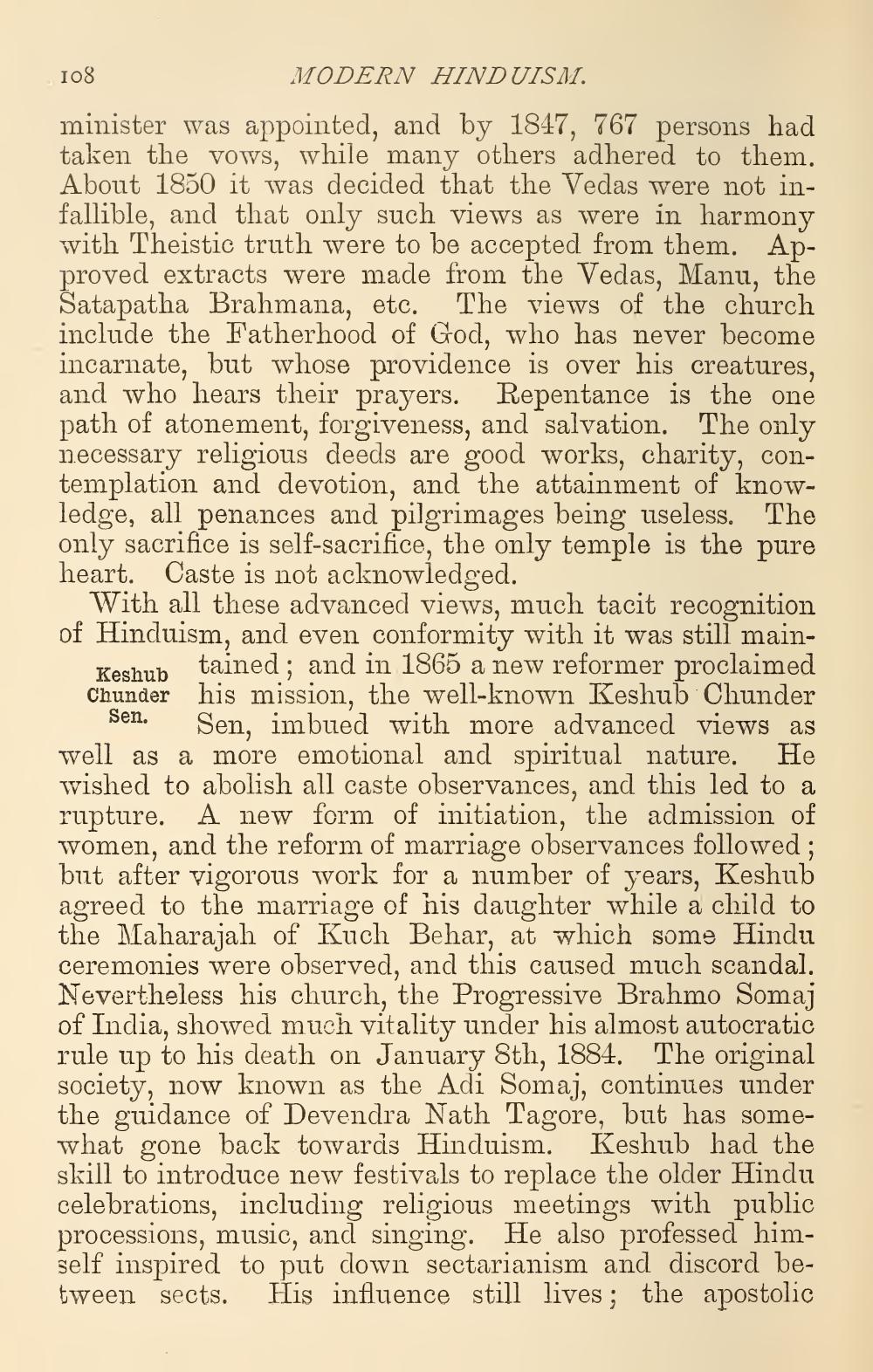________________
108
MODERN HINDUISM. minister was appointed, and by 1847, 767 persons had taken the vows, while many others adhered to them. About 1850 it was decided that the Vedas were not infallible, and that only such views as were in harmony with Theistic truth were to be accepted from them. Approved extracts were made from the Vedas, Manu, the Satapatha Brahmana, etc. The views of the church include the Fatherhood of God, who has never become incarnate, but whose providence is over his creatures, and who hears their prayers. Repentance is the one path of atonement, forgiveness, and salvation. The only necessary religious deeds are good works, charity, contemplation and devotion, and the attainment of knowledge, all penances and pilgrimages being useless. The only sacrifice is self-sacrifice, the only temple is the pure heart. Caste is not acknowledged.
With all these advanced views, much tacit recognition of Hinduism, and even conformity with it was still main
Keshub tained; and in 1865 a new reformer proclaimed Chunder his mission, the well-known Keshub Chunder
Sen. Sen, imbued with more advanced views as well as a more emotional and spiritual nature. He wished to abolish all caste observances, and this led to a rupture. A new form of initiation, the admission of women, and the reform of marriage observances followed ; but after vigorous work for a number of years, Keshub agreed to the marriage of his daughter while a child to the Maharajah of Kuch Behar, at which some Hindu ceremonies were observed, and this caused much scandal. Nevertheless his church, the Progressive Brahmo Somaj of India, showed much vitality under his almost autocratic rule up to his death on January 8th, 1884. The original society, now known as the Adi Somaj, continues under the guidance of Devendra Nath Tagore, but has somewhat gone back towards Hinduism. Keshub had the skill to introduce new festivals to replace the older Hindu celebrations, including religious meetings with public processions, music, and singing. He also professed himself inspired to put down sectarianism and discord between sects. His influence still lives; the apostolic




